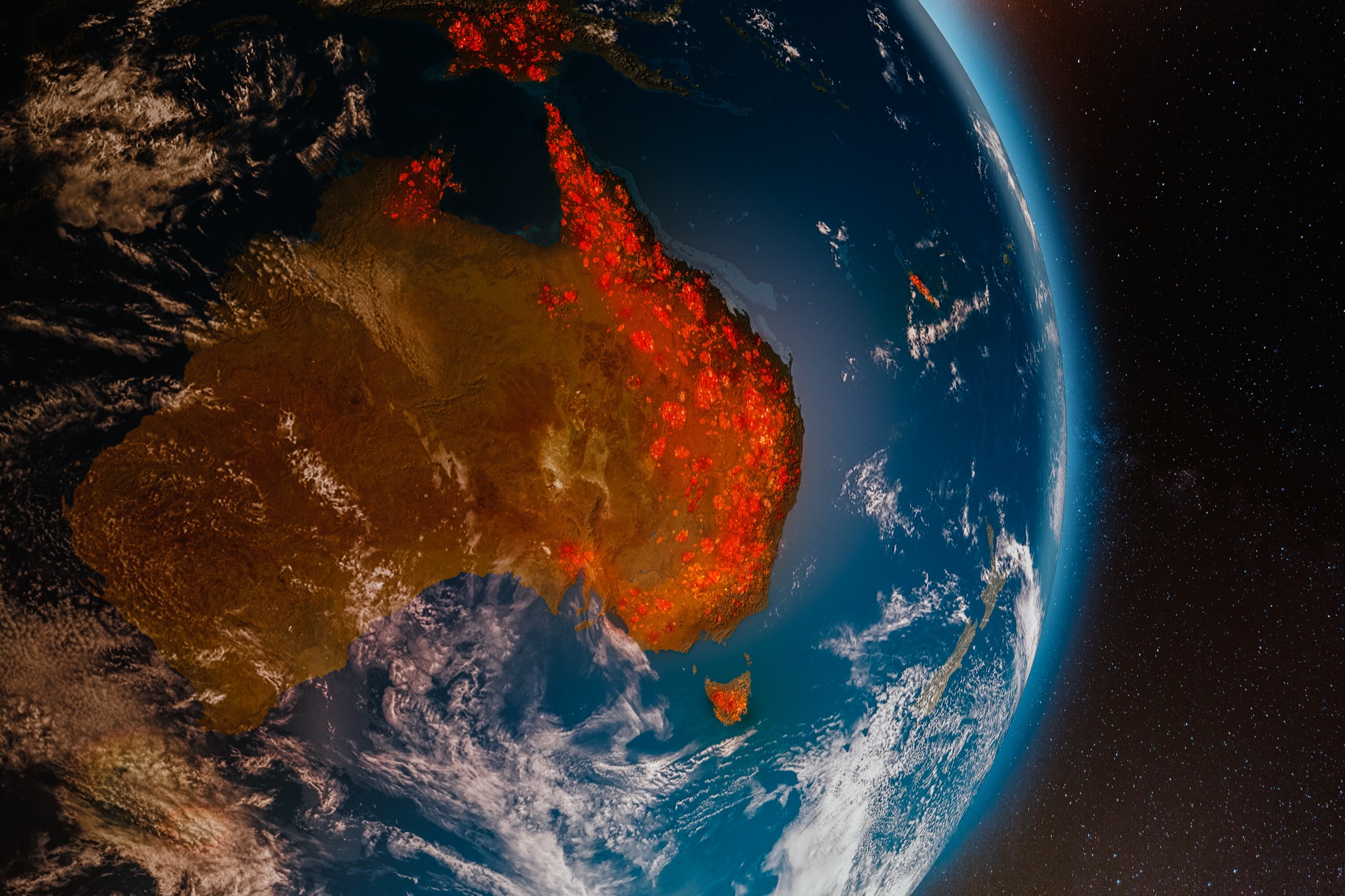This month we feature a guest post from our friend and colleague John Read. John is a passionate ecologist and author renowned for taking on and sticking with challenges. He is chair of the Warru Recovery Team, a director of several large conservation projects and the not-for-profit company Thylation that commercialises his conservation innovations. John first met Gayle when she was volunteering on an Earthwatch project he was leading at Arid Recovery and has subsequently worked with Gayle and Malcolm hosting leadership workshops on Tetepare Island in the Solomon Islands, a collaboration with local landowners of which John is the patron. We encourage you to follow John’s new blog documenting the human, social and environmental impacts of the COVID-19 pandemic.
Three months ago, like many Australians, I was ensconced in arguably the largest bushfire tragedy the world has ever experienced. Those fires focussed our attention on the safety and wellbeing of our communities and wildlife. We knew they represented the coup de grâce after an insidious and unprecedented hot dry period and we worried what the future held.
The term COVID-19 and the expressions ‘social distancing’ and ‘self-isolation’ had not been coined when I was battling alongside the fire crews, although we knew about a nasty new flu affecting a Chinese province.
Yet COVID-19, not our fires, will be remembered as one of the most influential global events for generations. I can recall horrific assassinations, wars, natural disasters and genocides, along with great sporting and cultural achievements. I recall my schoolkid fears about the Cuban Missile Crisis plunging us into a nuclear holocaust which cemented the nuclear disarmament ambitions of my generation.
Whilst other tragedies have undoubtedly affected families or even countries more, I doubt whether any crises have affected our global community like COVID-19. The September 11 terrorist attack and subsequent wars heralded a new world order (we still can’t carry a water bottle on a plane) but COVID-19 looks destined to trump even that shocking event.
Sporting competitions, artistic events and even the Adelaide Zoo, that have all remained open for lifetimes, have been suspended. National and state borders have been closed and communities and families have been isolated.
Two recent changes in my life have really driven home the magnitude of COVID-19.
Last week I was unable to hug my 81-year-old mother, something that I have always taken for granted and treated as a given.
And the prime minister’s declaration last week that funerals could not be held with more than 10 mourners was the ultimate wake-up call for me. A local lad killed in a car crash and the inspirational ‘Frog Man’, Mike Tyler, who both passed away last week, will not receive the goodbyes that they and their families and friends deserve. Mike’s wife, Ella, lamented to me, ‘The funeral was simply five family members in a stark room at the funeral parlour. No music and no friends to help us cope. Just an identification form to sign!’
Although I have been unsettled and shocked by these new rules, there is one small glimmer of hope. Our prime minister prefixed his announcement with the statement ‘I’m really sorry but we’ve just got to do it‘.
I can’t recall leaders previously making draconian (or even unpopular) decisions with such serious social and financial implications on the basis of scientific evidence or opinion. In a small way I’m buoyed by their willingness to govern for the long-term benefit of society, of restricting the liberties of one generation for the benefit of another.
I wonder where strong leadership could steer (or push!) our society and the role crises have in enabling such change?
Whilst we are living through this strange new world of social isolation, I’ve decided to compile a fortnightly blog for a number of reasons: to place this event in historic context, to learn from past crises, to discuss our current situation and to dream about what can be learned for the future.
This week I am reaching out to nonagenarians – yes that’s right, those aged 90 or thereabouts – who recall the grief, fears and deprivations of World War II and its aftermath. I’m asking how COVID-19 compares to the 1940s, how they coped back then and what they learned from the experience.
In case you aren’t 90, or don’t have a parent or neighbour you can quiz, your opportunity will come in following weeks when I explore our current fears and frustrations, how different leaders (national, state, local or sporting) are approaching the crisis and how we can learn from this unprecedented experience.
Stay tuned to my new blog here and please contribute on the John Read The Pragmatic Ecologist Facebook page.
Questions for 90-year-olds:
- How old were you in 1945?
- Can you recall any other crises with such widespread social or economic impact since WWII?
- What deprivations or restrictions in the 1940s affected you most?
- How effectively did leaders explain or convey the reason for restrictions and can you recall any noteworthy leaders or announcements?
- How did your war-time and post-war experiences influence your life or society?
- What advice do you have for younger generations experiencing this COVID-19 crisis?
John Read
Image credit: Shutterstock/OSORIOartist

